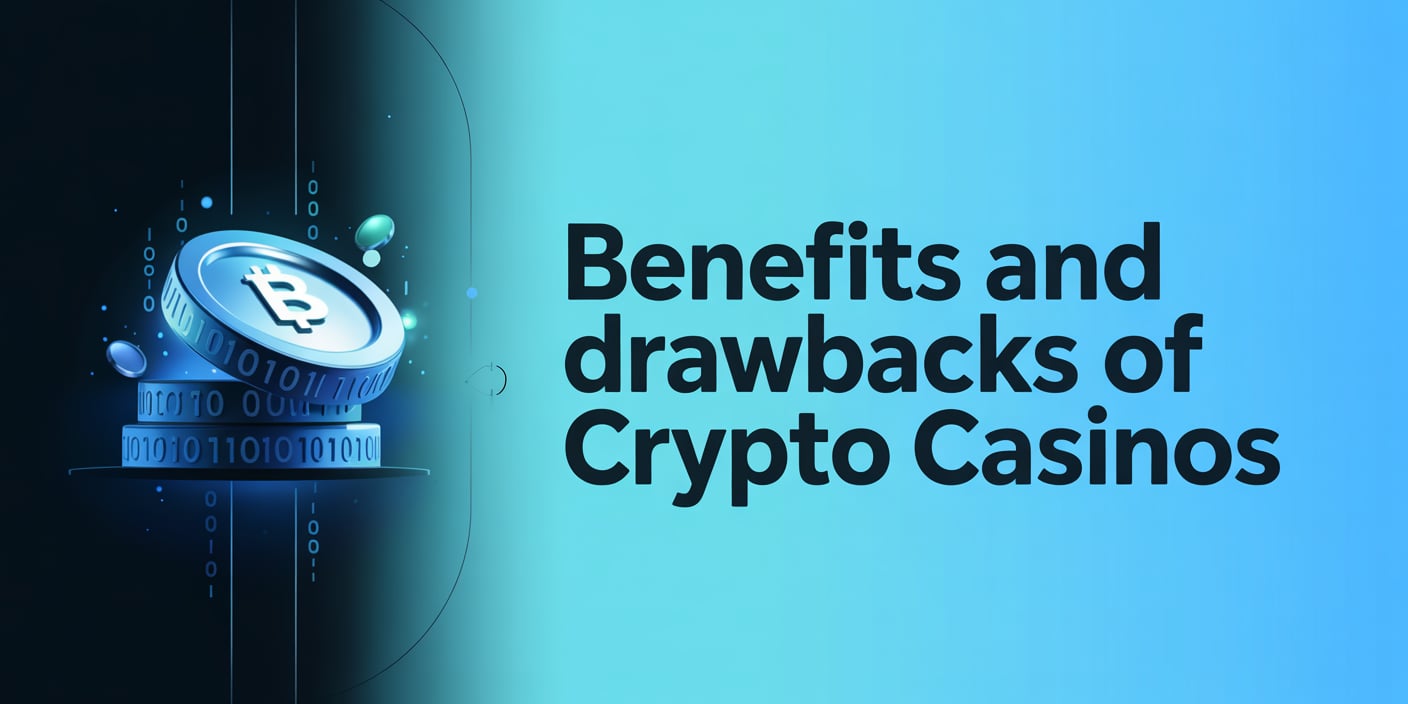Benefits and Drawbacks of Crypto Casinos

Cryptocurrency has entered modern life with a bang and is only expanding its reach, not only in finance but also in entertainment — that is, the casino and gambling industries. In Norway, where they love high tech and secure payment systems, the advent of crypto casinos appears to be the natural way to go. Crypto casinos combine two of the most beloved dreams of clients: anonymity and safety. The same tendencies can be followed across Scandinavia, with customers also showing interest in alternatives such as Bitcoin casino Sweden, which reflect the broader regional appetite for blockchain-based gaming solutions.
The Legacy of Bitcoin
Bitcoin, created by the mysterious Satoshi Nakamoto, introduced a revolutionary peer-to-peer concept of money transfer. While controversies about the true identity of the creator of Bitcoin keep emerging, one cannot deny its impact on global finance — and even in Norway. It paved the way for a decentralized economy, in which people are in full control of money without relying on traditional banking mediums.
Crypto Adoption and the Norwegian Context
In the majority of nations with inflation or devaluation of currencies, cryptocurrencies became an alternative store of value. Norway, as a stable economy, also saw growing interest in crypto — specifically due to the high digital literacy of the population and openness to financial technologies. The possibility of favorable tax treatment of crypto activities and a solid legal framework makes the Norwegian market attractive for digital asset companies. Crypto not only makes transactions fast and simple but can also make users grow digital wealth.
The Digital Walls of Crypto Casinos
In the early days of crypto gambling, there were just a handful of digital coins that were accepted. Today, players get to pick from a list of hundreds of cryptocurrencies. Modern crypto casinos offer specialty services, streaming sites, along with sponsorship deals with elite-level sport clubs and famous musicians. They have been supported by a young, tech-savvy player base in their development. The majority of the players are in the age range of 23 to 25 years, and they are characterized by dynamism, curiosity, and enthusiasm for new experiences. In spite of this, studies show that the player base also includes entrepreneurs, millennials, and students scattered across the globe with adventurous minds.
Primary Advantages of Crypto Casinos
Even though crypto gambling is an emerging niche, its advantages are obvious:
- Fast Transactions: Deposits via cryptocurrency are significantly faster than in traditional banking. Payment errors possible with fiat transactions are all but eliminated.
- Privacy and Anonymity: It is possible to conduct transactions without revealing personal information, with an extremely high level of confidentiality.
- Tax Benefits: In most European countries, including Norway, traditional gambling may be subject to taxation or regulation. Cryptocurrency transactions tend to sidestep such concerns, though players should stay abreast of local laws.
- Low Fees: Bank transfers can involve service fees of 1–3%, whereas crypto transfers are usually cheaper and not dependent on the amount sent.
- Security: Blockchain technology ensures a high level of security. Its structure makes it extremely difficult for unauthorized parties to manipulate or intercept data.
Identifying Weaknesses of Crypto Casinos
Of course, crypto casinos are not without flaws:
- Volatility: Crypto value changes quickly, affecting the actual value of a player's winnings or deposit.
- Regional Restrictions: Crypto is not accepted everywhere. Crypto is legal in Norway, though players must still ensure they are playing within evolving regulations.
- Irreversibility of Transactions: Financial mistakes tend to be final, since crypto transactions aren't typically refundable.
Conclusion
Crypto casinos are a bet on the future of online entertainment, merging the benefits of decentralized finance with the excitement of online gaming. In Norway, where consumers demand efficiency, privacy, and innovation, the sites have an immediate appeal. They offer fast, secure, and sometimes anonymous alternatives to traditional gambling, but also present some risks like market volatility and absence of recourse if anything goes awry. As Norway's crypto regulation evolves further and the technology matures, both investors and players must continue to be vigilant and cautious. But the potential for growth remains vast. With the right combination of regulation, end-user education, and innovation with responsibility, crypto casinos can emerge as a valid and valuable part of Norway's entertainment economy and financial system.
